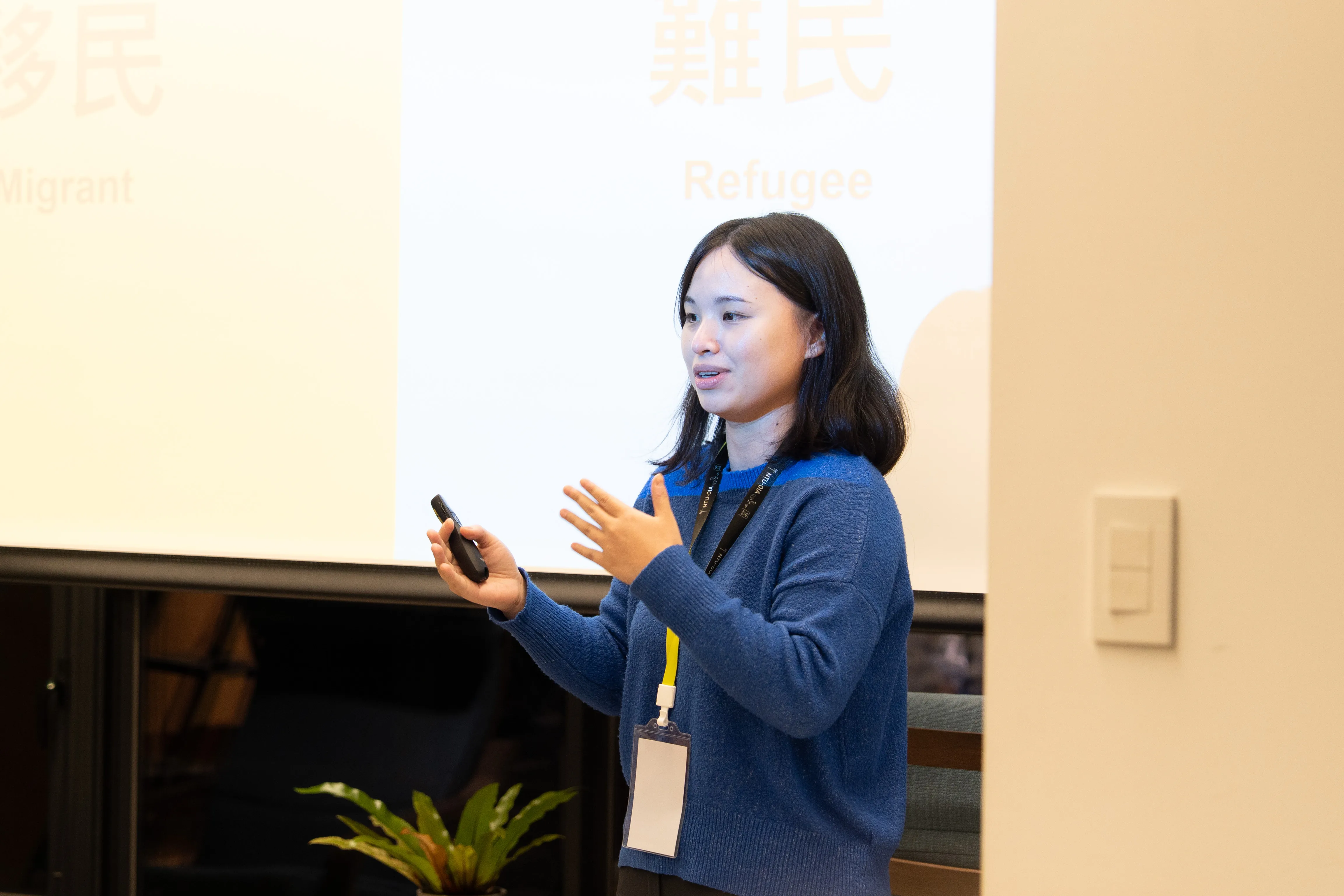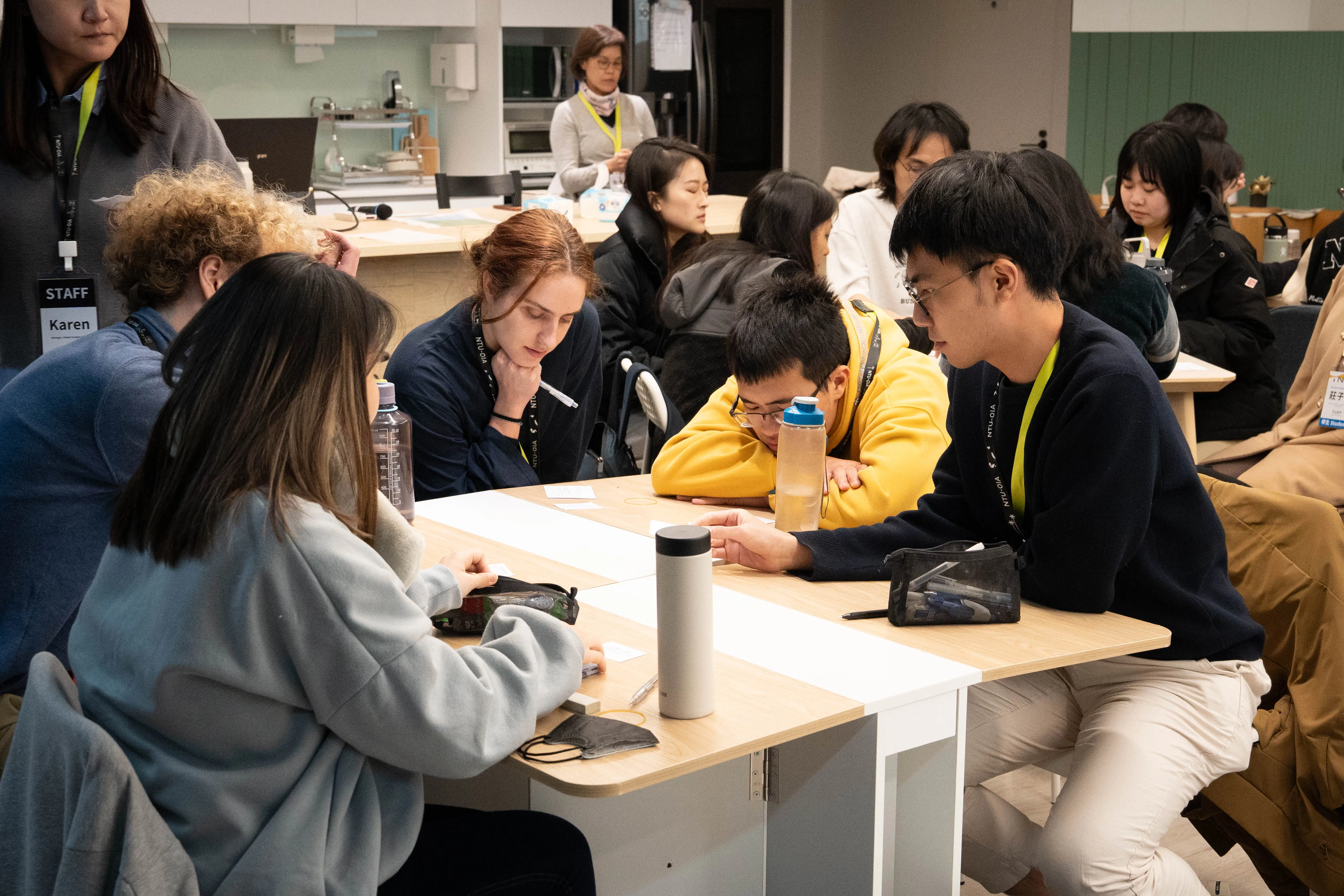
On Tuesday evening after classes, the NTU iNGO Academy participants gathered at NTUOIA for the second training session—Issue Research and Communication. This session featured Chunyuan Hu, the founder of Refugee 101 and current staff member at the Westminster Democracy Foundation’s Taiwan office. She shared her experiences in engaging with and researching refugee issues, as well as developing effective communication strategies.
Chunyuan recounted that her initial exposure to refugee issues occurred during a visit to Berlin ten years ago. There, she realized that the image she had of the city differed greatly from its reality—immigration had transformed Berlin. Moreover, she met a close friend with a Syrian refugee background, which deepened her understanding of refugee life histories and migration experiences. This encounter prompted her to ask, “What can I and my country of Taiwan do for refugees?” Consequently, she embarked on her journey of international service. From Belize and Vietnam to Jordan and Lebanon, she directly engaged with refugee communities and asylum seekers. Seeking further understanding, she pursued a Master’s in Education, Health Promotion, and International Development at University College London before returning to Taiwan to continue her work on refugee issues.

For iNGO Academy participants, acquiring a practical understanding of the issues and goals their organization cares about—and translating their insights into effective communication strategies for the public—is a crucial skill in their iNGO career path. Chunyuan began by discussing the differences between migrants and refugees, asking, "After listening to these refugee stories, what additional facets of this issue would you like to explore?"
She then proposed that issue research requires asking six key questions: (1) What is the research objective—what do I want to learn?; (2) What baseline knowledge do I possess, thereby assessing my current framework of understanding?; (3) What are the root causes and context of the issue, and why has it remained unresolved?; (4) What knowledge am I lacking (gap) that needs to be supplemented?; (5) What methods should I employ to obtain the required information?; and (6) How can I transform my findings into effectively communicated information?
Throughout her lecture, Chunyuan illustrated how issue research can aid advocacy by drawing on multiple real-life cases she had collected. For example, in one activity, students were asked to imagine they were part of a refugee family and decide which family member should depart first and which five items they would take. She explained that within a short period, many refugees might not be able to bring critical items such as medical records, identity documents, or academic diplomas—items that could determine whether they secure opportunities in a new country. This activity highlighted how issue research can generate essential material for advocacy communications.

In a subsequent activity, she demonstrated practical communication. Students were given brief profiles of refugee policies from six countries and were asked to select the scenario that resonated most with them if they were refugees. This exercise prompted them to consider why countries need to accept refugees and whether organizations have effectively conveyed the significance of their actions when seeking governmental support. Finally, Chunyuan used common public stereotypes about refugees as an example, warning that if an organization fails to convey the complexities of refugee issues to the public, displaying images of refugee living conditions might backfire.
After the session, many students asked questions—ranging from how Chunyuan communicated with her own parents to whether she set short-term advocacy goals. Consultant Jessie Chan also joined the discussion, inquiring what actions the audience could take to gradually change the broader structure. Chunyuan responded that her aim was not to transform everyone into a refugee advocate, but rather to ensure that, when addressing various issues, the refugee/migrant perspective is included in the discussion to foster a more inclusive society.
